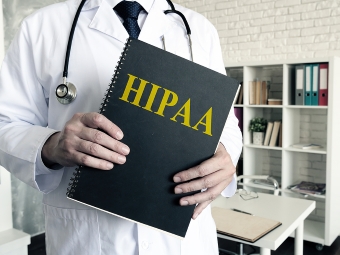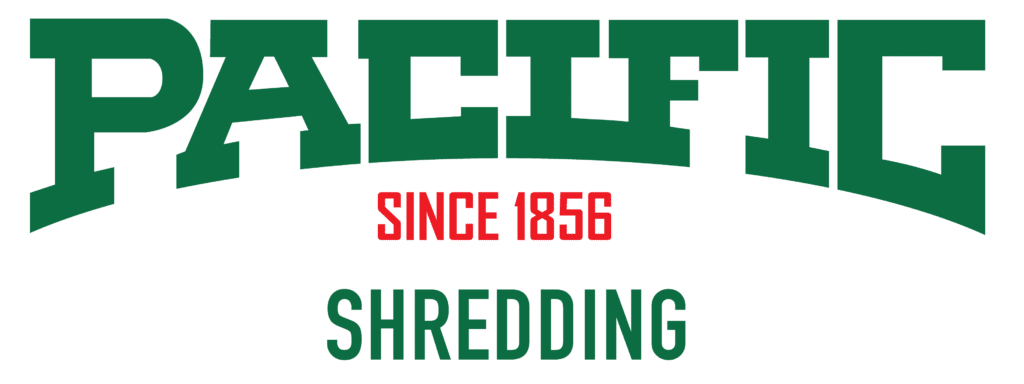HIPAA Compliance Starts at the Shred Bin: Best Practices for Healthcare Providers

Healthcare providers across California face a sobering reality: HIPAA violations can cost millions in fines and irreparably damage patient trust. While most medical facilities focus heavily on digital security, many overlook a critical vulnerability hiding in plain sight—those stacks of paper documents containing protected health information (PHI).
The truth is that proper document disposal isn’t just good practice—it’s legally required. Every prescription pad, patient chart, and insurance form that leaves your facility represents a potential compliance disaster if not handled correctly.
Understanding HIPAA’s Document Disposal Requirements
HIPAA’s Security Rule doesn’t mince words when it comes to PHI disposal. The regulation requires that covered entities implement “procedures for removal of electronic protected health information from electronic media before the media are made available for re-use.”
But here’s what catches many healthcare providers off guard: this requirement extends far beyond electronic records. Physical documents containing PHI must be rendered “unreadable, indecipherable, and otherwise cannot be reconstructed.”
Simply tossing patient files in the regular trash or basic office recycling bin doesn’t cut it. In fact, this common mistake has led to significant HIPAA violations for healthcare facilities throughout California’s Central Valley.
Think about the documents your facility generates daily:
- Patient intake forms with social security numbers
- Lab results and diagnostic reports
- Insurance verification paperwork
- Prescription records and medication lists
- Treatment notes and consultation summaries
Each piece of paper represents sensitive information that could devastate a patient’s privacy if accessed by unauthorized individuals.
Common Compliance Pitfalls in Healthcare Settings
The most dangerous assumption healthcare providers make is that good intentions equal good compliance. Many facilities believe they’re protected because they “try to be careful” with patient information.
Reality check: HIPAA Doesn’t Grade on Effort
Let’s review the example of a California medical practice that learned this lesson the hard way when investigators discovered patient records in their dumpster during a routine compliance audit. The practice faced substantial fines despite having no malicious intent; they simply lacked proper document destruction procedures.
Another common mistake involves mixing PHI with general office waste. When patient documents get tossed in with regular paperwork, the entire batch becomes a compliance risk. Staff members often don’t realize that even seemingly harmless items like appointment reminder slips contain enough information to violate HIPAA.
The solution isn’t more training sessions about being “more careful”—it’s implementing systematic destruction protocols that make compliance automatic rather than accidental.
Building a Bulletproof Document Destruction Program
Effective HIPAA compliance starts with recognizing that document security isn’t a part-time job. It requires dedicated systems, consistent procedures, and professional-grade destruction capabilities.
- Start with secure collection systems. Professional collection containers placed strategically throughout your facility ensure PHI never accidentally enters regular waste streams. These locked containers should be positioned in patient registration areas, nursing stations, and administrative offices.
- Create staff training programs. Your team needs crystal-clear guidelines about what constitutes PHI and how to handle it properly. This training should cover obvious documents like patient charts, but also less obvious items such as appointment calendars, billing statements, and even sticky notes with patient information.
- Make compliance simple, not complex. When procedures are complicated, busy healthcare workers find shortcuts that create compliance gaps.
- Establish clear protocols. Scheduled shredding services eliminate guesswork about when and how to dispose of sensitive documents. Regular pickup schedules ensure PHI doesn’t accumulate in storage areas where it becomes a growing liability.
Don’t forget about electronic media containing PHI. Outdated computers, backup drives, and even copy machine hard drives require professional destruction services to meet HIPAA requirements.
The bottom line? HIPAA compliance isn’t optional, and proper document destruction isn’t negotiable. Healthcare providers who treat shredding as an afterthought risk everything they’ve worked to build.
Protect your patients and your practice with professional document destruction services designed specifically for California healthcare providers. Call Pacific Shredding at (800) 685-9034 or complete the form on this page today!
